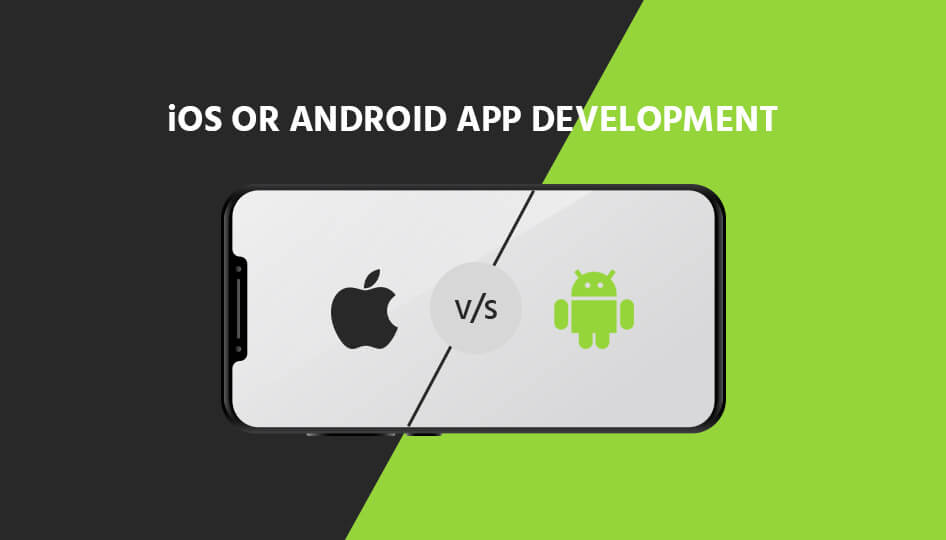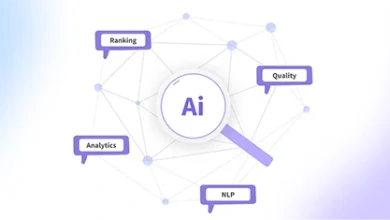Mobile app development is a thriving industry, with millions of smartphone users worldwide. When embarking on a mobile app development project, one of the critical decisions you need to make is selecting the platform for your app. The two dominant platforms are iOS, powering Apple devices, and Android, powering a wide range of devices from various manufacturers. In this article, we will explore the factors to consider when deciding between iOS and Android for mobile app development. So, let’s dive in and discover which platform might be the right choice for your next app development project!
iOS: Apple’s Ecosystem
Overview of iOS
iOS is the operating system developed by Apple exclusively for its devices, such as iPhones, iPads, and iPods. Known for its sleek design, security features, and seamless integration with Apple’s ecosystem, iOS offers a unique user experience and a dedicated user base.
Strengths of iOS
- Quality User Experience: iOS devices are known for their consistent and polished user experience. Apple tightly controls hardware and software integration, ensuring smooth performance and a cohesive interface across its devices.
- High Security Standards: iOS has a strong emphasis on security, making it an ideal choice for applications that handle sensitive user data. Apple’s strict app review process helps maintain a secure environment for users.
- Loyal User Base: Apple has a dedicated and engaged user base that often adopts the latest software updates and new devices quickly. This can be advantageous for app developers targeting specific demographics or seeking early user adoption.
- Monetization Opportunities: iOS users have historically shown a higher willingness to pay for apps and in-app purchases, making it an attractive platform for developers seeking monetization opportunities.
Android: The Open Ecosystem
Overview of Android
Android, developed by Google, is an open-source operating system used by various manufacturers on their devices. Android powers a wide range of smartphones and tablets, offering flexibility, customization options, and access to a large user base.
Strengths of Android
- Vast User Base: Android has a significantly larger user base compared to iOS, making it an attractive platform for reaching a broader audience and maximizing potential app downloads.
- Customization and Flexibility: Android allows for extensive customization and flexibility in terms of user interface, system-level modifications, and third-party app integration. This enables developers to create unique and tailored experiences.
- Integration with Google Services: Android seamlessly integrates with various Google services, such as Google Maps, Google Drive, and Google Pay. This integration can be beneficial when building applications that leverage these services.
- Device Fragmentation: Android’s device fragmentation, with a wide range of screen sizes, resolutions, and hardware specifications, provides developers with the opportunity to cater to diverse device configurations and reach a broader market.
Factors to Consider
When deciding between iOS and Android for mobile app development, consider the following factors:
- Target Audience: Analyze your target audience’s preferences, demographics, and geographical location. This can help you determine which platform aligns better with your user base.
- Development Costs: Development costs can vary between iOS and Android due to factors such as development tools, testing devices, and app store fees. Consider your budget and resources when making a decision.
- Time to Market: The time it takes to develop and release an app can differ between iOS and Android. If time is a critical factor, choose the platform that allows for faster development and deployment.
- App Complexity: The complexity of your app and its specific requirements may influence the platform choice. Some features or functionalities may be more readily available or easier to implement on one platform over the other. You can hire iOS developer for projects of all sizes, including small-scale projects.
FAQs (Frequently Asked Questions)
What does it mean to hire an iOS developer?
Hiring an iOS developer refers to the process of recruiting a professional who specializes in developing applications for Apple’s iOS platform. An iOS developer possesses the necessary skills and expertise to build, test, and maintain iOS applications.
Can an iOS developer develop Android apps as well?
iOS developers typically specialize in iOS app development using programming languages like Swift or Objective-C. While some developers may have experience with Android development, it is more common for developers to focus on one platform due to the differences in programming languages and platform-specific nuances.
Is iOS or Android better for monetizing apps?
Historically, iOS users have shown a higher willingness to pay for apps and make in-app purchases. However, the monetization potential ultimately depends on factors such as the app’s target audience, its unique value proposition, and the marketing and monetization strategies implemented.
Can I develop an app for both iOS and Android simultaneously?
Yes, it is possible to develop a cross-platform app that works on both iOS and Android devices using frameworks such as React Native or Flutter. These frameworks enable developers to write code once and deploy it across multiple platforms, reducing development time and costs.
Conclusion
Choosing between iOS and Android for mobile app development is a crucial decision that requires careful consideration of various factors. iOS offers a high-quality user experience, strong security standards, and a loyal user base, while Android provides customization options, access to a vast user base, and device diversity. By evaluating your target audience, development costs, time to market, and app complexity, you can make an informed decision that aligns with your app’s goals and objectives. Ultimately, both platforms offer immense opportunities for developers, and the choice depends on your specific requirements and target market.




